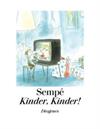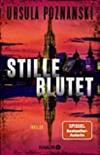
Those Angry Days: Roosevelt, Lindbergh, and America's Fight Over World War II, 1939-1941
by Lynne Olson | History | This book has not been rated.
ISBN: 1400069742 Global Overview for this book
ISBN: 1400069742 Global Overview for this book
1 journaler for this copy...
An advanced uncorrected proof copy from the Amazon.com Vine program to read and review.
I think that the common perception about America’s position regarding its participation in World War II prior to the attack on Pearl Harbor was strongly isolationist, which made it impossible for President Roosevelt to support the UK to the extent that he would have preferred. Lindbergh is identified as the face of this isolationist position, which seems to be understood as being the majority position until the surprise attack by Japan changed public opinion. This book shows that this understanding of history is overly simplistic and largely incorrect.
This book explores the (very) heated debate about what the role of the United States should be in World War II, relying upon actual quotes from contemporary sources such as newspapers and letters to illustrate the positions taken and the fierceness of the political battles over this issue. And as this book makes clear, this was an ugly fight, with both sides relying upon both solid arguments as well as innuendo and character assassination to try and persuade the American people to support their positions. While Roosevelt would have preferred a more interventionist position, he was still nursing the political wounds he had suffered in his battle to reshape the Supreme Court into a body more supportive of his agenda. These wounds, combined with his campaign for an unprecedented third term, made him incredible cautious about committing the country to any intervention without clear approval. And even within his administration, there were plenty of isolationists who opposed American entry into the War.
Surprisingly, it seems that the opinions of the majority of Americans did shift away from the isolationist position, but the isolationist movement had many prominent spokesmen, including a significant number of members in Congress, so that the politics of the issue did not readily shift to follow public opinion, and the efforts to aid the British remained feeble, at best.
Perhaps the most eye-opening revelations of this book are the extent to which the British government actively (if secretly) campaigned to influence the American politics on this issue. These effort extended far beyond conventional diplomacy, and included investigative efforts directed to uncovering embarrassing information about prominent isolationists, which could then be used by proponents of the US entry into the war effort to discredit those who opposed them. There were also significant British efforts to influence the American media with pro-British propaganda in an attempt to sway public opinion on these issues.
While this book is a useful corrective analysis of the debate about US war policy during the early years of World War II, it is also a powerful reminder that the ugliness of our political culture is not a recent phenomenon. The use of dirty political tricks to influence American policy was just as common and nasty in the middle of the previous century as it is today, and this book is a reminder that we can move beyond such politics and actually accomplish important things, if properly motivated.
This book explores the (very) heated debate about what the role of the United States should be in World War II, relying upon actual quotes from contemporary sources such as newspapers and letters to illustrate the positions taken and the fierceness of the political battles over this issue. And as this book makes clear, this was an ugly fight, with both sides relying upon both solid arguments as well as innuendo and character assassination to try and persuade the American people to support their positions. While Roosevelt would have preferred a more interventionist position, he was still nursing the political wounds he had suffered in his battle to reshape the Supreme Court into a body more supportive of his agenda. These wounds, combined with his campaign for an unprecedented third term, made him incredible cautious about committing the country to any intervention without clear approval. And even within his administration, there were plenty of isolationists who opposed American entry into the War.
Surprisingly, it seems that the opinions of the majority of Americans did shift away from the isolationist position, but the isolationist movement had many prominent spokesmen, including a significant number of members in Congress, so that the politics of the issue did not readily shift to follow public opinion, and the efforts to aid the British remained feeble, at best.
Perhaps the most eye-opening revelations of this book are the extent to which the British government actively (if secretly) campaigned to influence the American politics on this issue. These effort extended far beyond conventional diplomacy, and included investigative efforts directed to uncovering embarrassing information about prominent isolationists, which could then be used by proponents of the US entry into the war effort to discredit those who opposed them. There were also significant British efforts to influence the American media with pro-British propaganda in an attempt to sway public opinion on these issues.
While this book is a useful corrective analysis of the debate about US war policy during the early years of World War II, it is also a powerful reminder that the ugliness of our political culture is not a recent phenomenon. The use of dirty political tricks to influence American policy was just as common and nasty in the middle of the previous century as it is today, and this book is a reminder that we can move beyond such politics and actually accomplish important things, if properly motivated.











